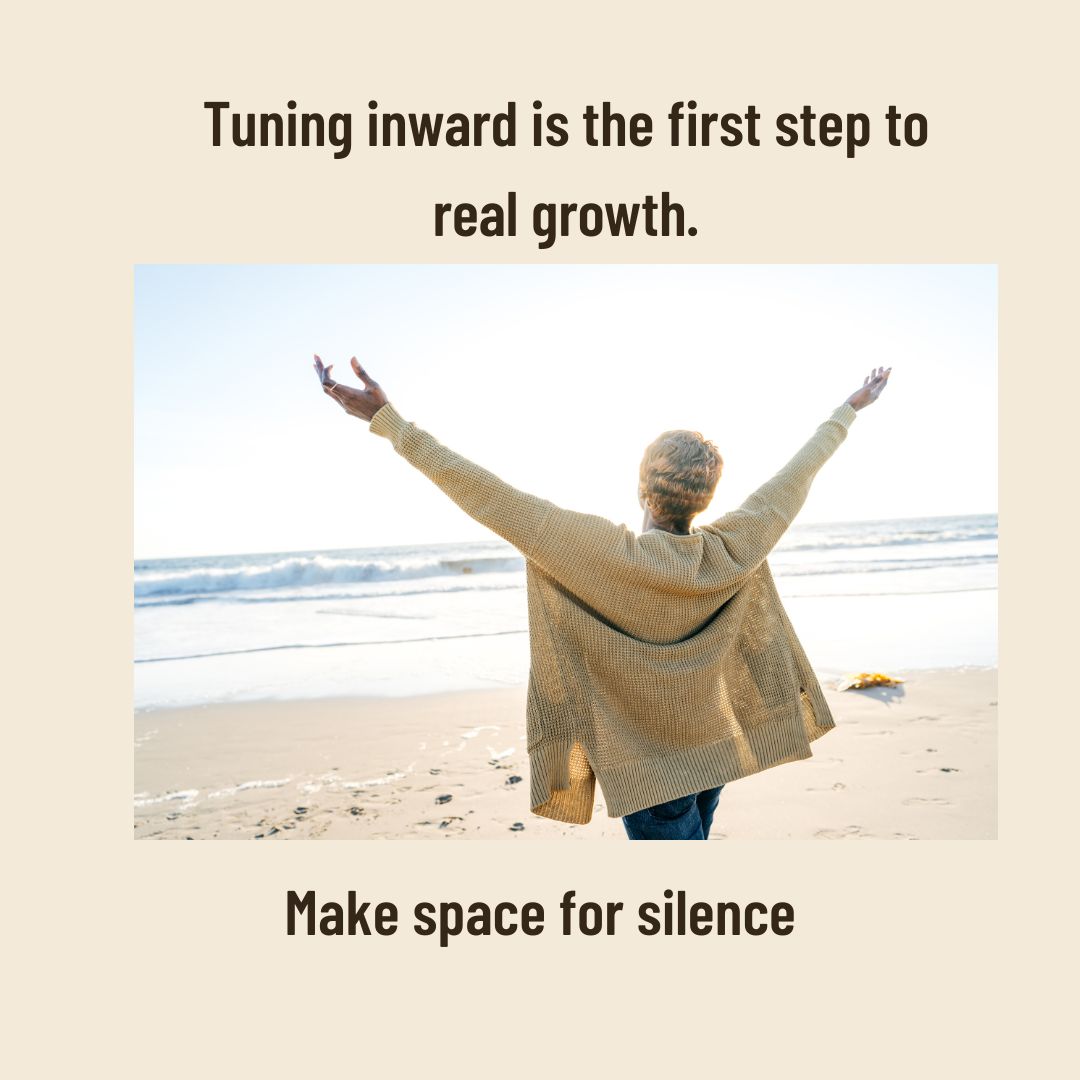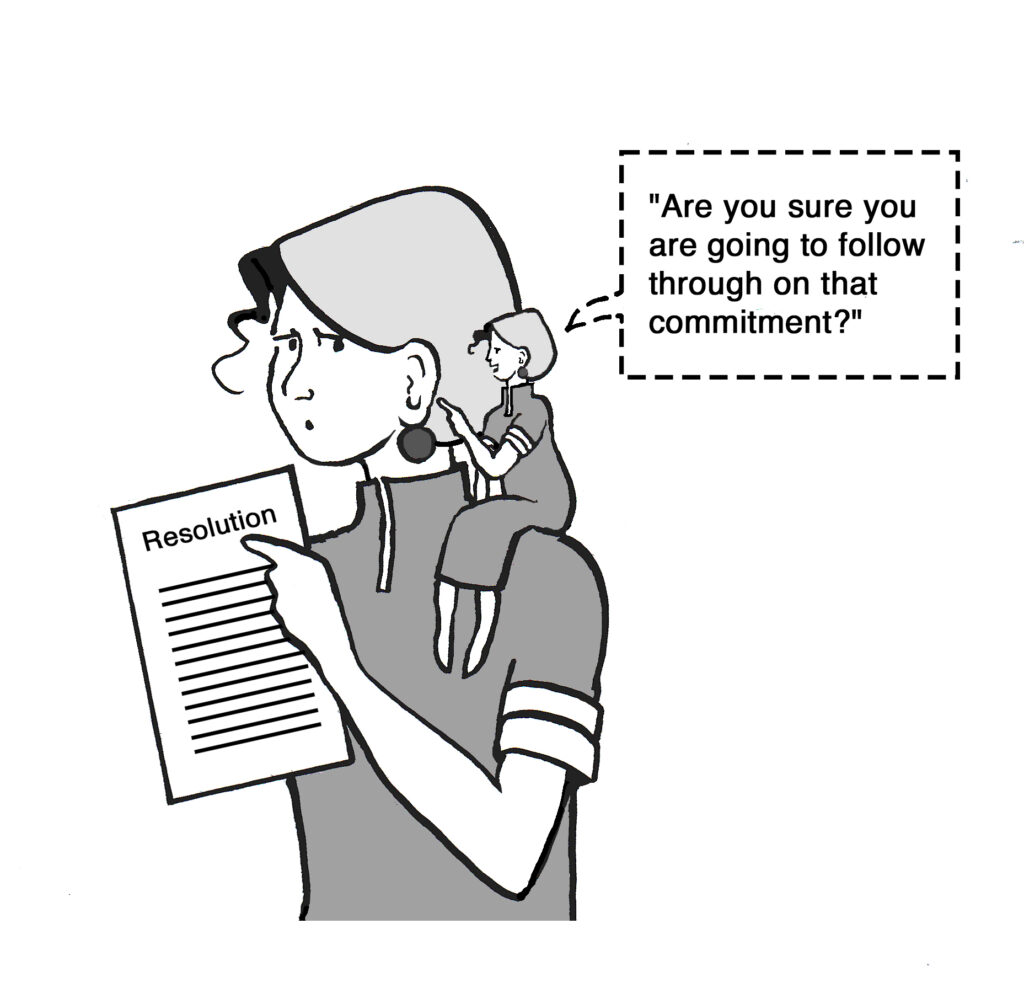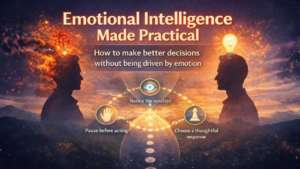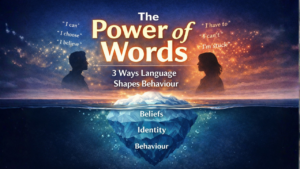Listening to Yourself: The Skill Most People Forget
We’ve all been told to “be a good listener.” We practice patience with friends, focus on colleagues, and listen carefully to our partners. But here’s a question we rarely ask: When was the last time you were truly listening to yourself?
Most of us are so busy tuning into others that we forget to tune into the one voice that guides every decision we make, our own. Learning how to listen to your inner voice is one of the most overlooked skills in personal growth and self-leadership practices.
Why Self-Listening Matters
Self-listening is about integrity. Integrity isn’t just keeping promises to others, it’s about keeping promises to yourself. It’s when your words and actions are integrated, when the life you say you want matches the choices you actually make.
But here’s the trap: if you don’t take time to listen inwardly, you can drift. You’ll say you value health while grabbing fast food, or claim you want to be present while scrolling your phone. Without listening to yourself, you slowly lose alignment with who you want to be.
This is why integrity and values alignment are at the heart of every meaningful change. Without that alignment, your decisions stay on the surface and never take root.
Recognising Your Inner Signals
Just as people give away clues through body language, your mind and body send signals too. That knot in your stomach, the constant sighs, the restless nights, these are mind-body signals of stress. They’re gentle messages from your unconscious saying: Pay attention. Something isn’t right.
Often, we ignore these signals. We push through, distract ourselves, or explain them away. But self-listening means noticing them, then asking: What is this really about? What am I not saying to myself?
This awareness is the first step toward trusting your inner voice—the quiet guide that tells you when you’re off course.
Values as an Inner Compass
One of the most powerful tools for listening to yourself is to check in with your values. The Integrated Values Iceberg shows us that decisions only stick when your unconscious values align with your conscious goals. This is what we call values alignment.
For example, if you keep setting goals but never follow through, it may not be a discipline problem, it may be a values alignment problem. Something deeper in you doesn’t believe, or doesn’t care, about the goal. By listening to yourself at that level, asking who you want to be, why it matters, and what beliefs are holding you back, you can uncover the real story.
That’s why inner compass exercises and reflective questioning are so important. They help you rediscover what truly drives you and bring your outer actions in line with your inner truth.
Practical Steps for Listening to Yourself
So, how do you start building this connection with your inner voice? Here are a few self-reflection practices to try:
Make space for silence. Set aside five minutes a day with no distractions. Just breathe, notice your thoughts, and see what surfaces.
Summarise your own thoughts. Write them down in your own words. Sometimes seeing your thoughts reflected back helps you spot the real issue.
Ask the ownership question. When you feel stuck or frustrated, pause and ask: What can I do about it? This shifts you from blame to responsibility, one of the cornerstones of self-leadership practices.
Check your alignment. Compare your daily actions with your stated values. Where are they consistent? Where is there a gap? That gap is where you need to listen most.
Listening to yourself isn’t indulgent, it’s essential. It’s the skill that helps you live with integrity, make better decisions, and show up more fully for others. When you give yourself the same gift of presence that you give others, you stop drifting and start leading your own life.
Listening Tip
This week, try this: at the end of each day, ask yourself, “Did my actions reflect the life I say I want?”
Write down what you notice. You may be surprised by what you hear when you finally stop and listen to yourself.
Related Resources
- 📖 Book: Listening – A Guide to Building Deeper Connections – available in paperback, eBook, and audiobook.
🎯 Coaching: Book a personal session for personalised support.
💼 Leadership Tips: Subscribe to the Team Focus newsletter here.







